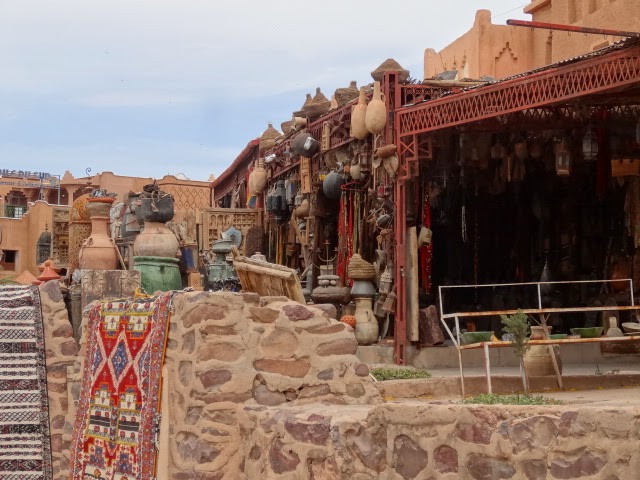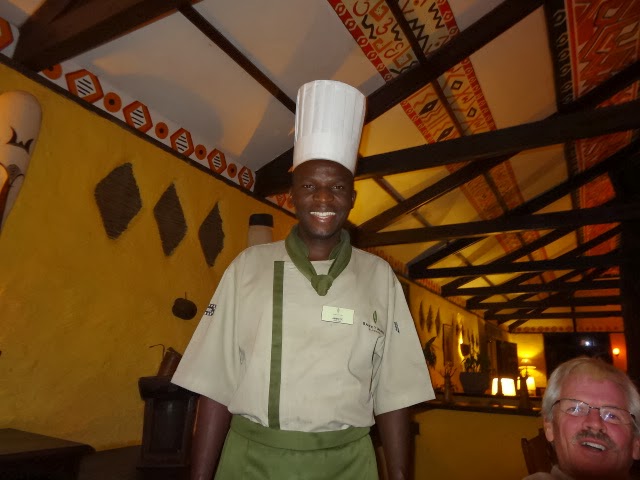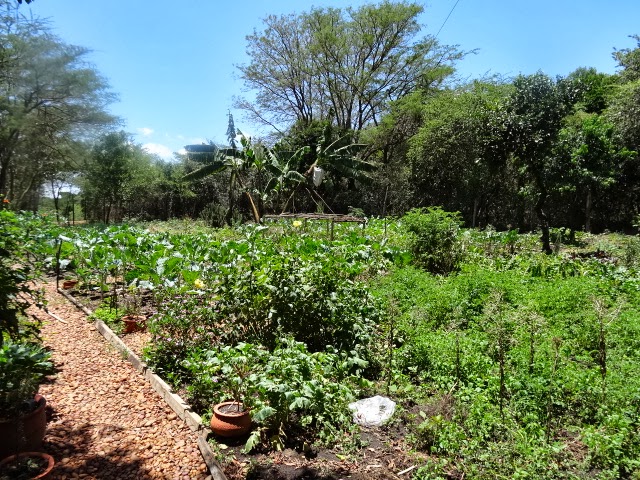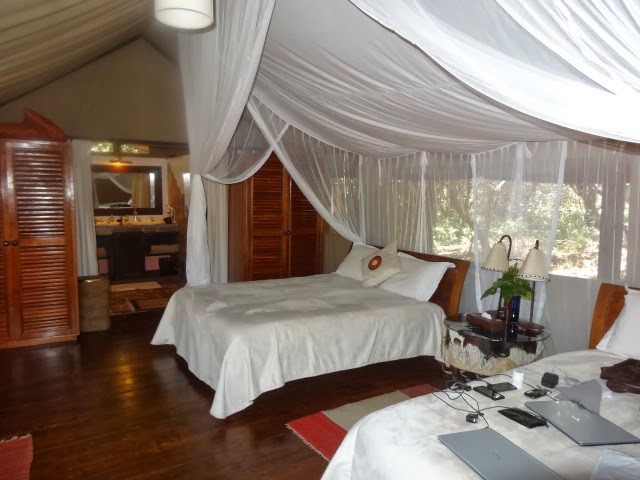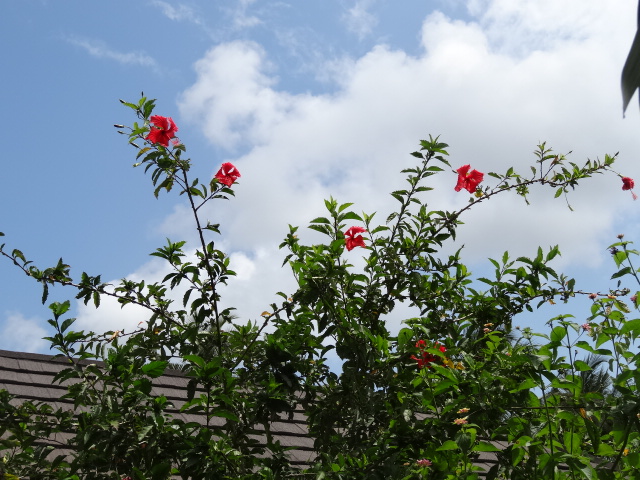 |
| The ferry docked at the edge of the village makes a daily trip to Viti Levu, the largest island in the Fiji chain. It’s an overnight journey, arriving at 4:00 or 5:00 am. Since we’ll spend our last month on that island, we see no reason to take the ferry and will again fly on the commuter plane when it’s time to leave. |
We feel compelled to share a story we’d considered not writing to avoid embarrassment for the owners of the property. However, after careful consideration and the unbelievably fast response from the owner, Mario to resolve the problem, our comments will only enhance the perception of how lucky we are to have Mario as our landlord and how quickly he responded to our needs.
Long ago, for many years, I owned rental properties throughout the Twin Cities. Even Tom had been a landlord for almost six years when he rented his old house after he moved in with me and, prior to daughter Tammy buying the house.
 |
| The dock is available for use of boats in this small harbor. |
We both realized as landlords that maintenance issues and general problems may not be known to a landlord if they aren’t reported by disgruntled renters living in the property over a period of time.
Such was the case here in this charming ocean view house we’ve rented for three months in Savusavu, Fiji, an issue unknown to the owner based on no complaints from prior renters. Also, many vacation homes have renters for only a few days at a time.
On the night we arrived, this past Tuesday, we were exhausted from a long 24 hour period of flurried activity with only five hours sleep in between. On three separate flights, overnight in Sydney, hauling our heavy bags and little food, by the time night fell on Tuesday, we were ready for a good night’s sleep.
 |
| As we wandered through the busy local farmer’s market, open daily, it was hard to decide which vendor to choose for our purchases. We purchased the following for FJD $22, USD $10.12: 2 red bell peppers (also called, capsaicin, here); 6 medium-sized aubergine (eggplant); 3 heads cabbage; and 8 large carrots. |
Tom usually stays up an hour longer than I do, so I was the first to fall into bed to read the book on my phone to hopefully lull me off to sleep. As soon as my head hit the pillow in the darkened room, I knew something was wrong. There was an awful, undefinable smell emanating from the pillows and blankets.
It reminded me of a small one would find in blankets that had been stored in a cupboard for many years, never to be used. I jumped out of bed, turned on the overhead light, and pulled back the covers. In the dim lighting, I couldn’t see a thing.
Again, I lay back down but found myself having difficulty breathing. Was I feeling anxious due to lack of sleep? Not one prone to anxiety, I’d felt a bit panicked and confused. I simply could not allow myself to lay on the pillows.
 |
| These are breadfruit often used in curry dishes, popular in Fiji. |
No matter what, in the morning we were asking Mario for four new pillows. If we had to, we’d go out and purchase them ourselves. Again, I got out of bed, grabbed a large bath towel from the bathroom, and wrapped it entirely around one pillow, tossing the second pillow on the floor.
Shortly Tom came to bed. I didn’t want to alarm him to have an effect on his quality of sleep but I did ask him if the pillows smelled funny. He said “no” and lay down, quickly falling asleep. From sheer exhaustion and the help of one Tylenol PM, I finally drifted off, sleeping fitfully for a mere four hours, dreaming I was being bitten by bugs. I was.
Jumping out of bed at 5:00 am, I awoke Tom asking if he was OK. He, too, had a bad night, feeling as if something was crawling on him and awoke several times scratching.
 |
| These are the sizes of the aubergine we purchased. These adjoining bowls contain a variety of hot peppers which I’d love to try but Tom doesn’t care for spicy food. |
We turned on the overhead light when daylight had yet to arrive to find zillions of tiny ants crawling all over the sheets, the blanket, and in and about the four pillows. At that point, we expected they were bedbugs. But, they were visible to the naked eye and looked exactly like miniature ants.
Bolting out of the bedroom, I stripped off my nightshirt and dashed under the shower into the hottest water I could stand. How were we going to wash off the hundreds of nibbles these creatures took on our bodies all night long? Tom showered right after me.
We worried about everything we’d unpacked, our clothes in the closet, our luggage in the corner of the room, everything we owned possibly subject to an infestation of these tiny ants.
 |
| These are some type of sweet potato. |
Trying not to overreact, as soon as it was a reasonable hour, I sent Mario an email explaining what had transpired. Our thoughts were running wild. Would we have to move out, find a hotel, lose the entire rent we’d paid for three months if we couldn’t live with the situation?
Our thoughts ran back to the dreadful first seven days of living outside the US in Belize when the little house had no screens and thousands of no-see-ums (sandflies) were in the house biting me and there was running water only a few hours a day. It took us a week to find another property while we lost the entire first month’s rent when the owner refused to return even a portion to us.
Well, within minutes of my email to Mario, he was at the door, worried and concerned for our well being. Within a few hours, the mattress (it’s common in most countries outside the US that beds don’t have box springs) and all the bedding including the pillows were long gone. The bedroom was treated for ants and completely wiped down with vinegar and water. By noon, a new mattress and all-new, never-used bedding were on the bed, beautifully made, awaiting that night’s much-needed rest.
We haven’t seen an ant since and we both slept like babies for no less than eight hours over the past two nights, awakening both mornings back to our old cheerful selves, full of energy and enthusiasm.
 |
| Coconuts peeled of outer shell were readily available in the market. If we had a machete, we’d buy a coconut for the delicious meat inside. |
Yesterday, we’d called our new driver, Ratness, to take us to town for more shopping when we’d done poorly on the day we arrived in our tired condition, unable to think well enough to find items we needed in the sparsely equipped little market.
Prior to visiting the grocery store, the vegetable market, and the meat market, we stopped at the roughly built Vodafone outdoor hut to buy SIM cards, one for the phone so we can call Ratness to arrange outings and another to enhance the slow wifi in the house, typical for this small island.
When we couldn’t get the data SIM card, for which we purchased 32 gigs for Fiji $110, USD $50 to work in either of our old hot spots, I spent time online figuring out how to use Tom’s phone as a hot spot (router) when mine was already set up as a phone. Finally, I got it to work but the signal is awful.
Tom will use the equally slow connection in the house while I’ll use the SIM in his phone, preventing us from having to share the poor signals. Next week Mario will be working on improving the quality of the connection to the house. In the interim, we’re only able to post a few photos each day when today it took over an hour to upload what we’ve shown here.
 |
| We weren’t certain of the significance of this tower a vendor was creating. |
Yesterday, we shopped at a different grocery store, New World IGA, with much better selections to accommodate the remaining items on the list. We headed back to the meat market for more grass-fed meats and spent considerable time in the fabulous all organic farmer’s market which is open all week where we’ll shop for produce in the future as well.
Back at home by 1 pm, I happily put away the groceries, washed veggies, and prepared most of our dinner. It’s a little odd without the news on in the background keeping us abreast of the latest affairs of the world, but we’ve settled into a nice routine, thoroughly enjoying this wonderful little house, its terrific views, and the sounds of nature.
With daily maid service and laundry, other than cooking and dishes, we have nothing to do but revel in our new lives as we look forward to exploring this gorgeous location.
So far, we’ve been unable to find cream cheese on this island which I often use in making a sauce for some dishes we make. But, I found funny little tinfoil bags of Marscapone I’ll use instead. Improvise. That’s us.
Tomorrow we’ll be back with photos of our new home and surroundings.
Photo from one year ago today, September 11, 2014:
 |
| It was raining most of the day on our 4X4 outing in Iceland. At the end of the countryside tour, we drove through Reykjavik to see downtown. For more details, please click here. |



































